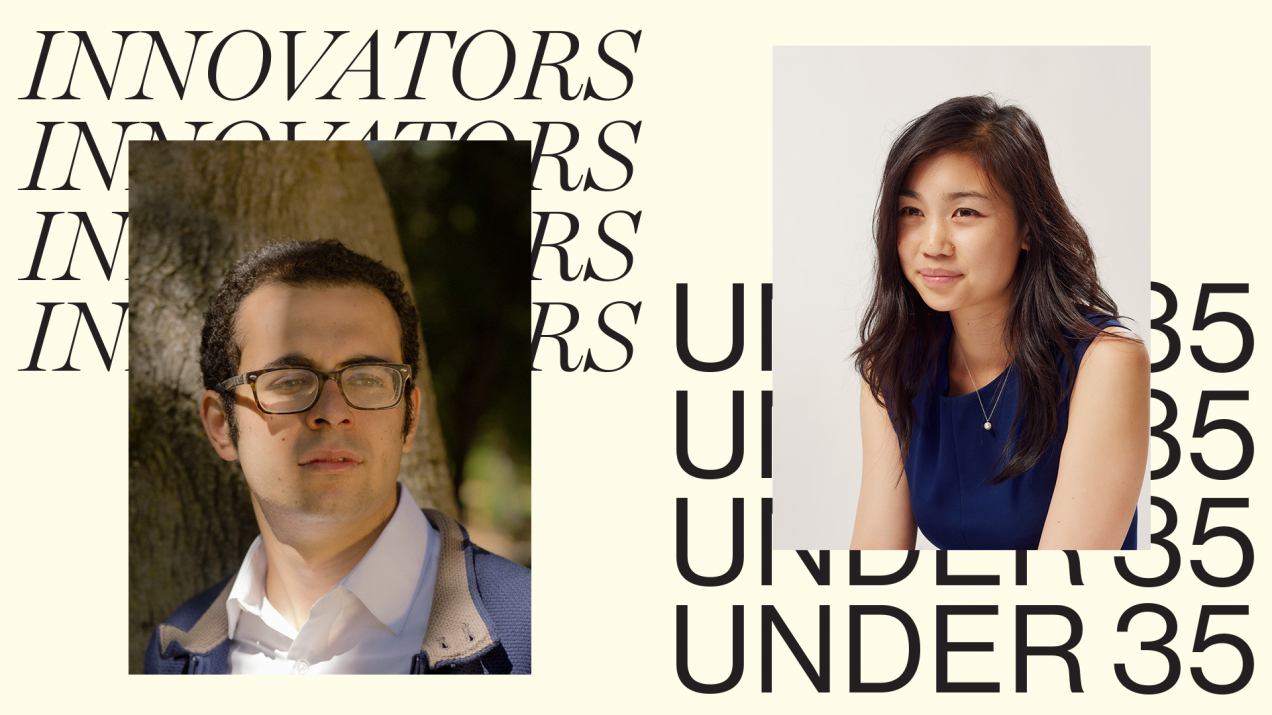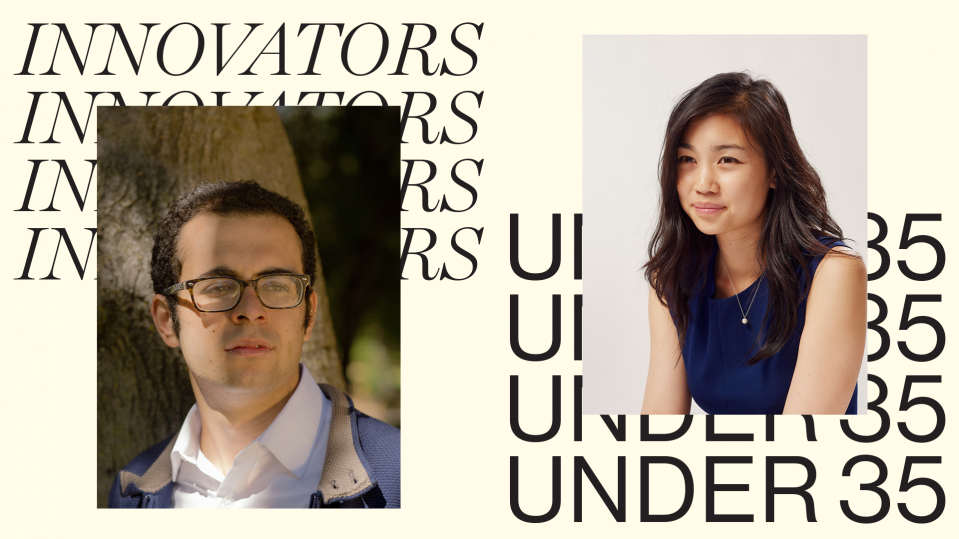

Business Impact
This Year’s 35 Innovators Under the Age of 35
Meet the young inventors, pioneers, entrepreneurs, visionaries, and humanitarians that will change the world.

You probably won’t recognize many, if any, of the remarkable people on this year’s list of 35 innovators under the age of 35. But that’s likely to change over the next few years as these inventors, entrepreneurs, businesspeople, and scientists revolutionize artificial intelligence, autonomous vehicles, clean energy, and medicine.
Take Ian Goodfellow, a researcher at Google Brain. His breakthrough allows deep neural networks, a type of AI that can learn to recognize patterns in massive amounts of data, to work in tandem to make sense of the world. The neural networks, in effect, teach each other—no need for a human programmer. As Goodfellow puts it, his work is a step toward giving artificial intelligence “a form of imagination.” (Stay tuned to see just what type of imagination machines come up with.)
Another rising star in AI is Olga Russakovsky, an assistant professor at Princeton who has made significant contributions in improving the ability of machines to recognize objects. Advances in machine vision are essential if robots are ever to be widely deployed in the home or if self-driving cars are ever to take over the roads, but getting machines to understand what they see is an immensely difficult problem. And, says Russakovsky, “we’re not there yet.” But like a number of others on our list of young innovators, she’s gone beyond technical advances. Recognizing that AI is likely to play an increasingly important role in our lives, Russakovsky believes that the people creating and shaping the technology should represent wider swaths of society. So she started AI4ALL, a nonprofit to increase diversity in the field. Not only does she want to get more women and people from underrepresented populations working in artificial intelligence, but she also wants people from different academic backgrounds, including medicine and psychology, collaborating to create tomorrow’s smart machines.
Beyond the impressive technology advances, the list of 35 young innovators is also filled with compelling human stories. Jianxiong Xiao is CEO of AutoX, a company building far cheaper versions of the hardware that enables autonomous vehicles to navigate safely. Xiao recalls growing up in Chaozhou, China. He was fascinated by the computers he had read about in books, but his family couldn’t afford such technology. Xiao nevertheless taught himself to touch-type on a keyboard drawn on a piece of paper. He eventually graduated from MIT with a PhD in computer science.
How influential will these unfamiliar faces turn out to be? Consider our first list of innovators under 35, in 1999: it identified names you’d recognize now, such as Apple’s Jonathan Ive and iRobot founder Helen Greiner, and others, such as Jackie Ying and Daniel Schrag, who are now world leaders in nanotechnology and climate science. We think the people on this year’s list will similarly change how the world thinks about what technology can do.